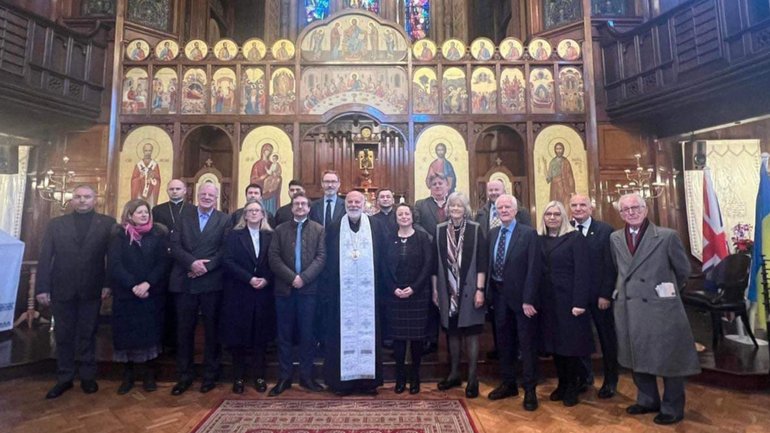As war grinds on, British MPs visit Ukrainian Catholic cathedral to show support

Bishop Kenneth Nowakowski, Eparchial Bishop of the Ukrainian Catholic Eparchy of the Holy Family of London, welcomed the group on Nov. 28, showing them the Welcome Centre, which has been set up to provide help to Ukrainian families by providing computers, a play area for children, and a place to cook and eat together.
On Feb. 24, 2022, Russia invaded Ukraine, in an escalation of the Russo-Ukrainian War that started in 2014.
Ukraine’s foreign minister Dmytro Kuleba recently suggested that Russian President Vladimir Putin will wait until after the US election in 2024 before making a peace deal, with the hope that Donald Trump – widely seen as a Putin supporter – will retake office.
“He always waits for elections in another country to take place and for the new government and new leadership to change the attitude. And President Putin always failed, consistently failed, in his expectations,” Kuleba said.
“There may be differences about the best ways to contain Russia, to deter Russia. But the understanding [at NATO] that Russia poses a threat is consensual, and I don’t see that changing,” he added.
Nowakowski said it was “a great joy” to welcome the British members of Parliament and the House of Lords to his cathedral.
“Visits like this help to remind our politicians of the impact this terrible war is having on people’s lives and the need to support the Ukrainian people,” the bishop said.
“I appreciated the opportunity to pray with the group and to thank them for their continued support. Sadly, you do not need to look far beyond Ukraine to see other parts of the world where peace is badly needed. My message is simply – please do not forget Ukraine. We will need your prayers and support all the more as another year of this conflict approaches,” he said.
During a meeting of foreign ministers in Brussels on Nov. 28, British Foreign Secretary David Cameron galvanized support for Ukraine among NATO allies.
“NATO keeps over one billion people safe and secure. And nearly 75 years on, the Alliance is stronger than ever,” Cameron said.
“Putin first believed that NATO would be divided, and that Ukraine would crumble. Now he believes he can wait out his war in Ukraine. He was wrong then, and he is wrong now. Together, the UK and our NATO allies will never turn a blind eye to Russian aggression. The UK will continue to be a steadfast supporter of Ukraine and a champion for European peace and stability,” the foreign secretary added.
Catholic Union Deputy Director, James Somerville-Meikle, helped organize the parliamentarians’ visit to the Ukrainian eparchy’s cathedral.
“We are extremely grateful to Bishop Kenneth and the team at the Cathedral for making this visit possible,” he said.
“As this terrible conflict continues, we must not forget the people of Ukraine and those who are helping them. The work of the Cathedral and the Welcome Centre shows the Church at its best – providing a place of prayer and practical support to those seeking refuge. Thanks to all MPs and peers who took part in the visit and helped to promote this brilliant work,” Somerville-Meikle said.
Meanwhile, NATO Secretary General Jens Stoltenberg said, “Last year, Ukraine won the battles for Kyiv, Kharkiv and Kherson.”
“This year they continue to inflict heavy losses on Russia… Most importantly, Ukraine has prevailed as a sovereign, independent, democratic nation. This is a major achievement – a big win,” he added, emphasizing that “Ukraine is closer to NATO than ever before.”
Turning to the situation on the ground, the NATO official underlined the substantial progress made by Ukraine this year, both on land and in the Black Sea.
Meanwhile, Soltenberg said that Russia is losing political influence in its near abroad, has incurred more than 300,000 casualties and lost a substantial part of its conventional forces, and is under economic pressure.
Russia is now “weaker politically, militarily and economically… year by year, Moscow is mortgaging its future to Beijing” he said, concluding that “all of this underlines Putin’s strategic mistake in invading Ukraine.”









